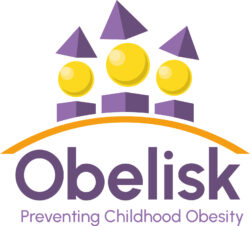Cutting the roots of the obesity pandemic
The rates of childhood obesity are increasing rapidly, which is a cause for concern. As per the WHO European Regional Obesity Report 2022, approximately one in three primary school-aged children in Europe is living with obesity or overweight. Unfortunately, this figure is expected to increase further. Children and teenagers with obesity and overweight are at a higher risk of developing severe health conditions in the future, such as diabetes, cardiovascular disease, and disability, which can lead to premature death. Treating adults with obesity and overweight is a challenge, and it has been proven that prevention and treatment are more effective in younger age groups.
To address this issue, the Obelisk project – a new European initiative – is launching an ambitious research programme aimed at preventing childhood obesity by “cutting the roots” of this pandemic. The Obelisk project’s approach is founded on four principles, represented by the four-sided structure that we are all familiar with: Prediction, Prevention, Precision, and Participation.
Our research and impacts
The goal of Obelisk is to advance our understanding of the molecular mechanisms that contribute to the onset of childhood obesity. This knowledge will be utilised to create new tools and treatments that can help prevent and reverse obesity in children. Our research teams will work to identify new genes associated with childhood obesity, providing the opportunity to develop new drug treatments. Additionally, we will be trialling targeted approaches to prevent childhood obesity, including the testing of new treatments for children who are predisposed to severe obesity due to genetic mutations. Throughout the project, our participatory approach will ensure that we engage with families, caregivers, daycare providers, schools, local authorities, the healthcare industry, policymakers, and the scientific and academic communities. We will also be offering educational programs to disseminate our findings.
